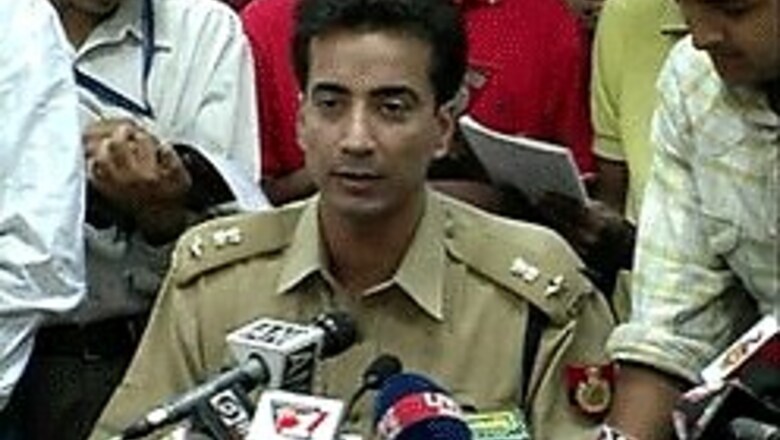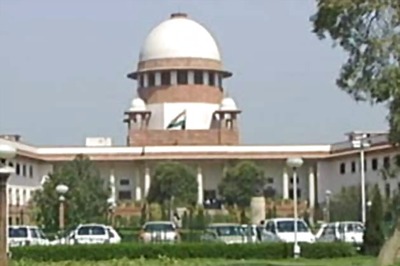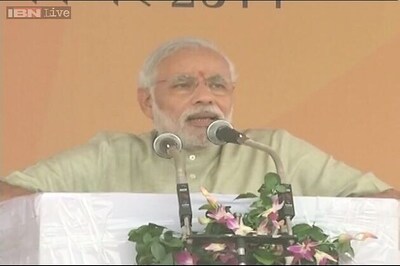
views
New Delhi: With the arrest of three more terror suspects of the Indian Mujahideen who are allegedly involved in the serial blasts in Delhi, the police on Sunday claimed that the terror module was planning to explode at least 20 bombs in several places in the Capital, including Nehru Place.
The IM terror suspects were planning to strike in some of biggest business hubs in Delhi, Deputy Commissioner of Police (South) HGS Dhaliwal said.
Zia-ur-Rehman, Shakir Nishar and Mohammad Shakeel were arrested early on Sunday morning from Jamia Nagar, the locality where two alleged terrorists, including the 'main suspect' Atif were killed in a gunbattle with police on Friday.
The police also arrested Abdul Rehman, the caretaker of Batla House where the terror suspects were residing. Rehman, the father of the arrested Zia, had allegedly forged the signature of the owner of the house. The encounter had taken place in that house.
During the interrogation of Mohammed Saif and Zeeshan who were arrested on Friday, the police claimed that they told investigators that Shakeel had planted the bomb in Gaffar market in Karol Bagh.
Dhaliwal said Zia and Shakeel planted bombs in the Maninagar area in the heart of Ahmedabad during the July 26 serial blasts.
The Delhi police had on Saturday claimed that they have uncovered the conspiracy behind the attacks in the Capital and in Jaipur and Ahmedabad.
The police said they were carried out by terrorists of Indian Mujahideen and the Students Islamic Movement of India in league with the Pakistan-based Lashkar-e-Toiba.
Dhaliwal said Shakeel was a student of Jamia University where he was pursuing second year MA (Economics), while Zia was a student of third year BA in the same institution.
Nishar was doing an MBA course through distant education mode from Sikkim Manipal University.
Zia provided logistics support to the group while Shakeel was a ideologue who indoctrinated the other members and kept a watch on them in the absence of Atif.
"The terrorists planted bombs in the evening to cause maximum casualty," he said. They wrapped the bombs in two polythene covers and was asked by mastermind Atif to put garbage in the polythene bags so that no body suspected them, he said.
The arrested terror suspects had at least four years of association with Atif, who usually told them to do just what they are assigned to do and not ask questions about future plans, Dhaliwal said.
"The module used to get restless when blasts were not happening and Atif used to tell the members that there is a drought in the newspapers and that they have to do something," he said.
Dhaliwal said the "general feeling" of the module was that "something should be happening continuously" and there "should not be any vacuum" in their activities.
The module used to immediately gather at their hideout after planting the bombs and were glued to news channels.
"They even used to mock at each other and would compare the casualty of the blasts in localities where each of them planted bombs," Dhaliwal said.




















Comments
0 comment